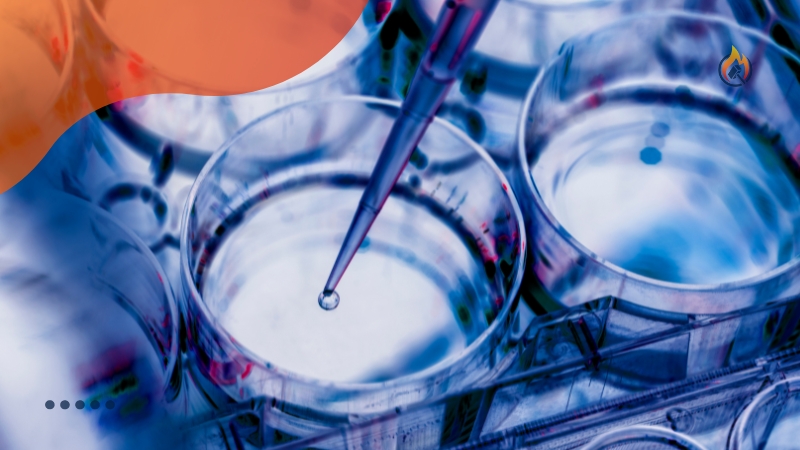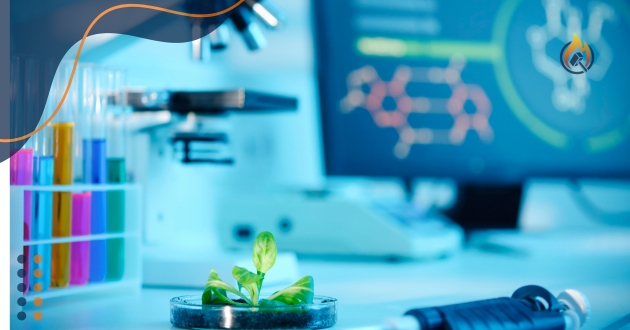Biotechnology advances in healthcare have transformed the medical field, offering groundbreaking solutions to some of the most pressing challenges in medicine. Over the past few decades, biotechnology has played a pivotal role in enhancing diagnostics, treatment, and the overall quality of patient care. With continuous innovations, it has become a cornerstone in the development of modern healthcare systems.
In recent years, the integration of biotechnology advances in healthcare has led to the creation of new therapies and medical technologies. From gene editing to personalized medicine, these innovations are reshaping the way healthcare professionals approach diseases.
The rapid pace of biotechnology advances in healthcare has also contributed to the democratization of healthcare services globally. Not only has it expanded access to cutting-edge treatments, but it has also reduced costs in some areas by increasing efficiency and accuracy in medical procedures.
The Role of Biotechnology in Modern Healthcare

1. Revolutionizing Diagnostics
One of the most significant areas where biotechnology has made strides is in diagnostics. Advanced diagnostic tools such as genetic testing and molecular diagnostics enable earlier detection of diseases, sometimes even before symptoms appear.
Early diagnosis is crucial for diseases like cancer, where treatment success rates are much higher when detected early.
2. Personalized Medicine
Biotechnology has also laid the foundation for personalized medicine, which tailors treatment plans based on a patient’s genetic makeup.
This approach allows for more precise and effective treatments, reducing the risk of side effects and improving recovery times.
For instance, cancer therapies can now target specific genetic mutations, leading to more successful outcomes.
Investing in Biotechnology: A Growing Opportunity
The rapid growth of biotechnology in healthcare has not only transformed medical treatments but also opened up significant technology investment opportunities.
Investors are increasingly looking at biotech companies that are developing innovative solutions, such as gene therapy, personalized medicine, and advanced diagnostics.
As these technologies continue to evolve, the potential for high returns on investment grows, particularly in areas where healthcare needs are urgent and solutions are cutting-edge.
Biotechnology’s Impact on Therapeutics
1. Gene Therapy and CRISPR Technology
Gene therapy, powered by biotechnological advancements, has emerged as a potential cure for previously untreatable genetic disorders.
Technologies like CRISPR allow scientists to edit defective genes, offering hope for conditions such as cystic fibrosis and muscular dystrophy.
These therapies are still in their infancy but show great promise for the future of medicine.
2. Biopharmaceuticals and Drug Development
The biotechnology sector has also accelerated drug development, particularly in creating biopharmaceuticals—medications derived from biological sources.
These drugs are more targeted and often more effective than traditional pharmaceuticals, leading to better patient outcomes. Examples include insulin for diabetes and monoclonal antibodies for cancer treatment.
Challenges and Ethical Considerations in Biotechnology
1. Ethical Dilemmas
While biotechnology advances in healthcare bring immense potential, they also raise ethical concerns. Gene editing, for example, poses questions about the extent to which humans should interfere with natural processes.
The potential for creating “designer babies” or unintended genetic consequences requires careful regulation and ethical considerations.
2. Accessibility and Cost
Another significant challenge is ensuring that these advanced biotechnological treatments are accessible to all patients, not just those in affluent societies.
The high cost of research and development often translates into expensive treatments, making it critical for governments and healthcare systems to find ways to make these innovations more widely available.
Tools and Technologies Driving Biotechnology Advances
The advancement of biotechnology in healthcare relies heavily on innovative tools and technologies that facilitate research, diagnostics, and treatment development.
Companies like Thermo Fisher Scientific provide essential products and services, ranging from laboratory equipment to advanced diagnostic solutions, which are crucial for breakthroughs in areas such as gene editing, molecular diagnostics, and biopharmaceutical development.
These technologies help researchers push the boundaries of what is possible in healthcare, enabling faster, more accurate results that drive innovation forward.
FAQ – Biotechnology Advances in Healthcare
1. What is biotechnology in healthcare?
Biotechnology in healthcare refers to the use of biological systems, organisms, or derivatives to develop medical technologies and treatments. This includes drug development, genetic testing, stem cell therapy, and the creation of vaccines and biopharmaceuticals. These advancements aim to improve patient care and medical outcomes.
2. How does biotechnology improve healthcare?
Biotechnology improves healthcare by providing more accurate diagnostics, personalized treatments, and innovative therapies. Technologies such as genetic testing, gene editing, and molecular diagnostics allow for early disease detection and more effective interventions. Additionally, biotechnological advancements have accelerated drug development and improved the production of vaccines.
3. What role does biotechnology play in personalized medicine?
Biotechnology is key in personalized medicine by enabling treatments tailored to an individual’s genetic profile. By understanding the genetic factors that influence disease, doctors can prescribe treatments that are more effective for the individual, reducing side effects and improving recovery times.
4. Are there ethical concerns related to biotechnology in healthcare?
Yes, there are ethical concerns, especially with technologies like gene editing and genetic testing. Issues such as privacy, the potential for genetic discrimination, and the ethical implications of altering human genes, particularly in germline cells, are widely debated. Regulatory frameworks are crucial to ensure responsible use of biotechnological innovations.
5. How does biotechnology contribute to vaccine development?
Biotechnology has revolutionized vaccine development by making the process faster and more efficient. Techniques like recombinant DNA and mRNA technology allow for the creation of vaccines that are more targeted and safer. These methods were instrumental in the rapid development of COVID-19 vaccines, for example.
6. What is the future of biotechnology in healthcare?
The future of biotechnology in healthcare is promising, with continued advancements in areas like gene therapy, stem cell research, and personalized medicine. Future developments may lead to cures for genetic diseases, more effective cancer treatments, and regenerative medicine that can replace damaged tissues and organs.
7. How accessible are biotechnological treatments for patients?
Accessibility to biotechnological treatments varies. While biopharmaceuticals and advanced therapies offer remarkable results, they can be expensive and are sometimes only available in certain regions. Efforts are being made to reduce costs and increase the global availability of these treatments, particularly in underserved populations.
Conclusion: Biotechnology advances in healthcare
In conclusion, biotechnology advances in healthcare have revolutionized the way we approach diagnostics, treatment, and disease prevention. From personalized medicine to cutting-edge therapies like gene editing and stem cell treatments, these innovations are transforming patient outcomes and improving the quality of life for many.
As biotechnology continues to evolve, it opens up vast opportunities for both medical advancements and technology investment opportunities. With ongoing research and the development of new tools provided by companies like Thermo Fisher Scientific, the future of healthcare looks promising, with potential breakthroughs on the horizon that could reshape medical practices.
However, with these advancements come challenges, including ethical concerns and issues related to accessibility. As the biotechnology industry grows, it will be essential to ensure that these innovations benefit all patients and are implemented responsibly, creating a more inclusive and effective healthcare system for the future.


